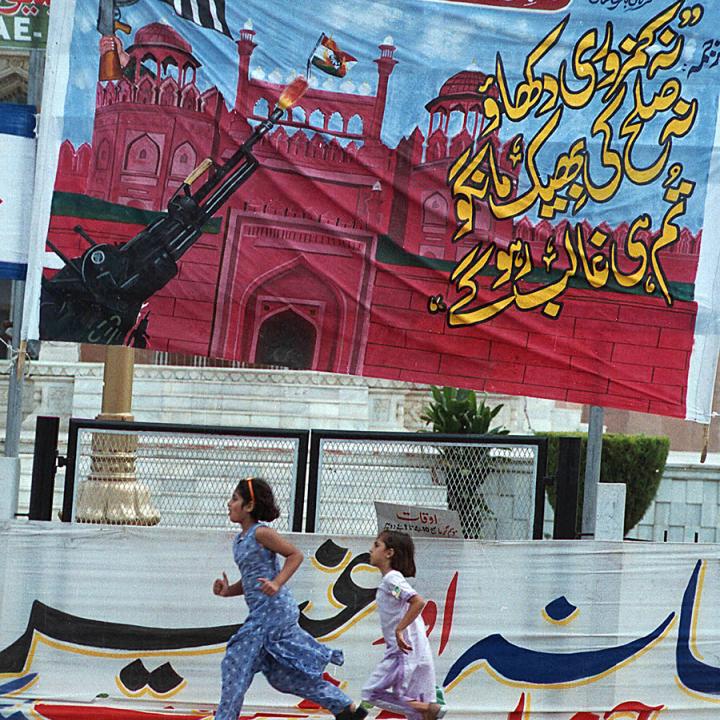
- Policy Analysis
- Articles & Op-Eds
Taliban Bigger Threat to Pakistan Than India

It is time for Pakistan's military and intelligence leaders to recognize that their preoccupation with India and their willingness to tolerate certain radical elements are not in the country's best interests.
If we have learned one thing about the Islamic State, al-Qaeda or the Tehrik-i-Taliban (the Pakistani Taliban), there are no limits. Beheadings, taking young women as sex slaves or murdering children are the normal practices of these groups who claim to own the truth. These radical Islamists seek to remake the world in their image, and terror is their chosen instrument for doing so.
Not that the world needed a reminder, but the Pakistani Taliban's slaughter today of more than 140 people, mostly schoolchildren -- many simply shot in the head -- as attackers rampaged through their classrooms in northwestern Pakistan once again shocked our basic sensibilities.
In Pakistan, the Taliban threat to kids is not new. Malala Yousafzai, the Pakistani teenager who recently won the Nobel Peace Prize for championing education for girls, was herself the victim of an attack because she had the audacity to resist Taliban threats against her attending school. Today, she lives in the United Kingdom because she is not safe in Pakistan. In response to the attack on the school, she said: "I, along with millions of others around the world, mourn these children, my brothers and sisters -- but we will never be defeated."
No one can question her bravery or resolve. It is surely the international community and Muslim leaders everywhere who must do all they can to discredit and delegitimize these groups that claim to be religious but challenge the most basic religious and human values. The Pakistani foreign ministry said in response to the attack that "these terrorists are enemies of Pakistan, enemies of Islam, and enemies of humanity."
Pakistan's approach to the Taliban has not always sent that message. True, Pakistan's military has from time to time fought these groups and is now engaged in an extensive offensive against Tehrik-i-Taliban in North Waziristan -- so much so that the Taliban claimed the attack on the school was retaliation for that offensive.
But the fact remains that for much of the conflict in Afghanistan, Pakistan's security and intelligence forces have treated the Afghani Taliban as partners and not enemies -- permitting safe havens in Pakistan, doing little about the Haqqani network (which threatened Afghan and American forces), and turning a blind eye to assaults carried out across the border into Afghanistan. Being prepared to fight the Pakistani Taliban, while tolerating its Afghani brothers, caused constant friction with us and with the government in Kabul. But it also reflected the continuing Pakistani preoccupation with India.
It is not radical Islamists that have been the priority of the Pakistani security apparatus and its intelligence arm -- the Inter-Service Intelligence (ISI). Historic rivalry, two wars and disputed territories have made India the focus of the security establishment in Pakistan. The ISI has used radical Islamist groups like Lashkar-e-Tayyiba as proxies in the struggle not just over Kashmir but with India more generally. Small wonder that the Pakistani Taliban was not the preoccupation of Pakistan's security efforts -- but is it possible that in the aftermath of the Taliban's siege of the Karachi airport in June and now the sickening attack on the school, the security priority of Pakistan's military apparatus could shift?
Most observers of Pakistan would probably say no. After all, the attitudes toward India are deeply rooted and old habits of thought won't be easily changed. But there is also a simple and unmistakable truth: India does not constitute a daily threat to the basic security and well-being of Pakistan's citizens. The Taliban does. It is time for Pakistan's military and intelligence leaders to recognize that reality and act accordingly.
Dennis Ross is the counselor and William Davidson Distinguished Fellow at The Washington Institute.
USA Today



